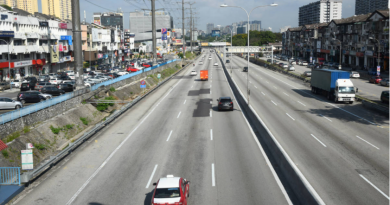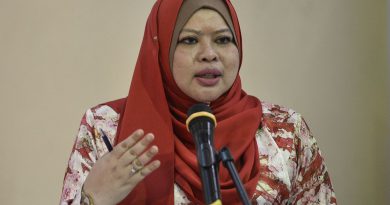Ministry backs departure levy
PETALING JAYA: The Tourism Ministry is backing the implementation of the departure levy next month despite calls from the industry to defer the tax until after Visit Malaysia Year 2020.
Tourism, Arts and Culture Minister Datuk Mohamaddin Ketapi said after discussions with Finance Minister Lim Guan Eng, he fully supported the implementation of the departure levy for the development of the country.
“I hope the industry players can understand the government’s move is for the good of the country,” he told The Star.
Mohamaddin had told Parliament in June that he wanted the levy to be deferred until after Visit Malaysia Year 2020.
The Malaysian Association of Tour and Travel Agents (MATTA) has been asking for a deferment, as they believe the levy will affect the number of visitors to the country and stifle the government’s forecast results in conjunction with the programme.
“We are not for or against the levy. All we are asking is for it to be deferred,” said MATTA president Datuk Tan Kok Liang.
While the departure levy is expected to earn the country RM1bil a year, he said the Tourism Ministry had forecast earning RM21.5bil from tourist receipts.
“Why do we want to implement it three months before Visit Malaysia Year? Why not do it after and get all the mechanics right. Let the stakeholders talk about it,” he said.
He also questioned how the payments would be made – whether through airports or included in airfares.
In a gazette published on July 31, the Finance Ministry fixed Sept 1 as the effective date for the departure levy. Anyone leaving Malaysia for Asean countries will be charged RM8 for flights in economy class and RM50 for other classes.
For flights to countries outside Asean, those travelling in economy class will be charged RM20 while those in other classes will have to fork out RM150.
The levy is on top of a passenger service charge or airport tax, which is RM35 for flights to Asean and RM73 for non-Asean flights.
The International Air Transport Association (IATA) had in April said that the levy had the potential to do more harm than good to the Malaysian economy.
Based on IATA’s analysis, the introduction of the levy would reduce the number of passengers departing Malaysia by air to drop to 835,000 per year, decrease the aviation sector’s GDP contribution by up to US$419mil (RM1.7bil) and see a reduction of up to 5,300 jobs.
Many others took to social media to express their displeasure.
The Star Online’s Facebook page was inundated with numerous comments criticising the government for the levy.
James Ooi said it was shameful for the government for talking big about lowering the cost of transportation but raising taxes.
“Budget airlines do the hard work of making air ticket affordable for ordinary people but government is making it unaffordable again. (Do) only the rich deserve (to) holiday overseas? Shameful!”
Jonathan Ky Heng said the government abolished the Goods and Services Tax but imposed other new taxes that didn’t ease the burden of the rakyat.
Sridevan Sriniwass, however, agreed with the levy and said if someone could afford three regional holidays a year just to Instagram, a RM200 meal in a swanky Bangkok restaurant, they should be able to afford RM8.
Malaysian Inbound Tourism Association president Uzaidi Udanis believed there must be a good reason for the Finance Ministry to come up with the decision and said the industry must now move forward. He said the decision was not popular but was sure the government would have done its research on it.
“On our part, there is no point in arguing about this. We have to move forward. Malaysia has a lot of attractions to attract tourists,” he said. He said they did not experience any cancellations because of the announcement.
“Nobody likes taxes. The most important thing is that there should be an allocation for the promotion of tourism products as it’s very competitive in Asean,” he said.
He suggested for the levy to be included in the airline fares for convenience, so that there are no long queues at the airports for people to pay the tax.
Source: TheStar



